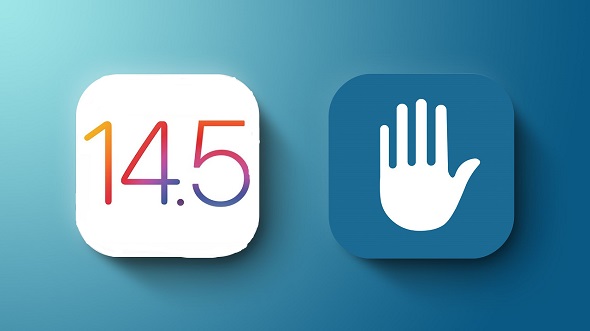Many of us choose to use the iPhone in addition to other Apple devices because of the company's keenness on User privacy And its safety and developing it constantly. And this is what you do in every new update, so do not keep developing new features in addition to filling gaps and patching them periodically, and if you need more privacy, wait for the iOS 14.5 update expected to be released this week, which adds new tools to protect our data while browsing the web and more control over the data that is Collected by the applications installed on our devices.
The latest update from Apple protects your privacy and security from apps, websites, services, advertisers, and more, but there is more in iOS 14.5. In total, it adds nearly 50 new features and changes, including more than 200 new emojis, updates to Apple Maps, updates to Apple Music, Reminders, and improvements to Siri. And if you do not want to miss any of these features and how they work, follow us constantly and turn on notifications so that we will keep you updated.
Control how apps track your iPhone's activity
If you've been browsing through Settings in previous versions of iOS, you might have seen a feature called "Allow apps to request tracking."
This option controls whether apps can request permission to track your iOS activity across other apps and websites. However, that has not been fully effective, because Apple has not prompted apps to ask yet, with iOS 14.5, that all changes.
This feature is one of the standout features in iOS 14.5, you might have seen a window or two of some apps about it. But the update comes as a deadline for developers to add the request to their applications, so be prepared to see many of these pop-ups after updating your iPhone. If you want to avoid those pop-ups, and then prevent many of these apps from tracking you in the first place, there is a simple switch that you can enable or disable as in the image above.
Disable private click metering in Safari
With iOS 14.5, Apple implemented a new web privacy feature for Safari called “Private Click Measurement,” for PCM, which allows sites and advertisers to measure ad clicks across websites and from iOS apps to websites.
Ad tracking is not a privacy friendly business. Online advertisers know when you click on an advertisement in an iPhone app or website to display the web page for the advertisement in Safari. Advertisers do not need to know your true identity to benefit from click-on data, which is why Apple has the built-in "Prevent Cross-Site Tracking" option in Safari, which scans this data.
This way, your identity is hidden at times when you choose an ad, and advertisers will only see that someone checked the ad, not you specifically.
Apple says PCM sends attribution reports to advertisers with limited data in private browsing mode without any cookies, randomly delaying reports between 24 and 48 hours to separate events in time, process data on the device and the web does not require the app to be granted permission to track.
You can delete stored clicks whenever you clear website data through Settings - Safari - Advanced “at the bottom of Safari Settings” - then website data.
Thus, no data is logged in private browsing mode; The Web Monitor feature may be used within PCM applications although applications using SFSafariViewController may be used in the future; You can unsubscribe if you want to. To do this, head over to Settings - Safari and turn off “Privacy Preserving Ad Measurement”.
When disabled, “no click metadata will be stored, and no referral reports will be sent”.
Apple protects your IP address from Google for safer browsing
Ironically, that is one of the features that Safari uses to protect your privacy. "Fraudulent Website Warning" will show you an alert if you visit a website that appears to steal your personal data or phish to obtain sensitive credentials.
To find out which websites are believed to be phishing in the first place, Apple uses Google's "Safe Browsing" database, which includes all websites that Google suspects are fraudulent or malicious. Google shares a hashed prefixes list of URLs to Safari from this database. If the website you are trying to view matches any of the hashes, Safari asks for the full URL from Google, which prevents Google from knowing which URL you are trying to reach.
While this may seem secure enough, Google may actually receive your IP address during this exchange, which represents a privacy security vulnerability. Apple changed this in iOS 14.5, pulling Safe Browsing data from Google through its own servers instead of Google's. This way, Google will not see your URL, nor your IP information.
Source:
